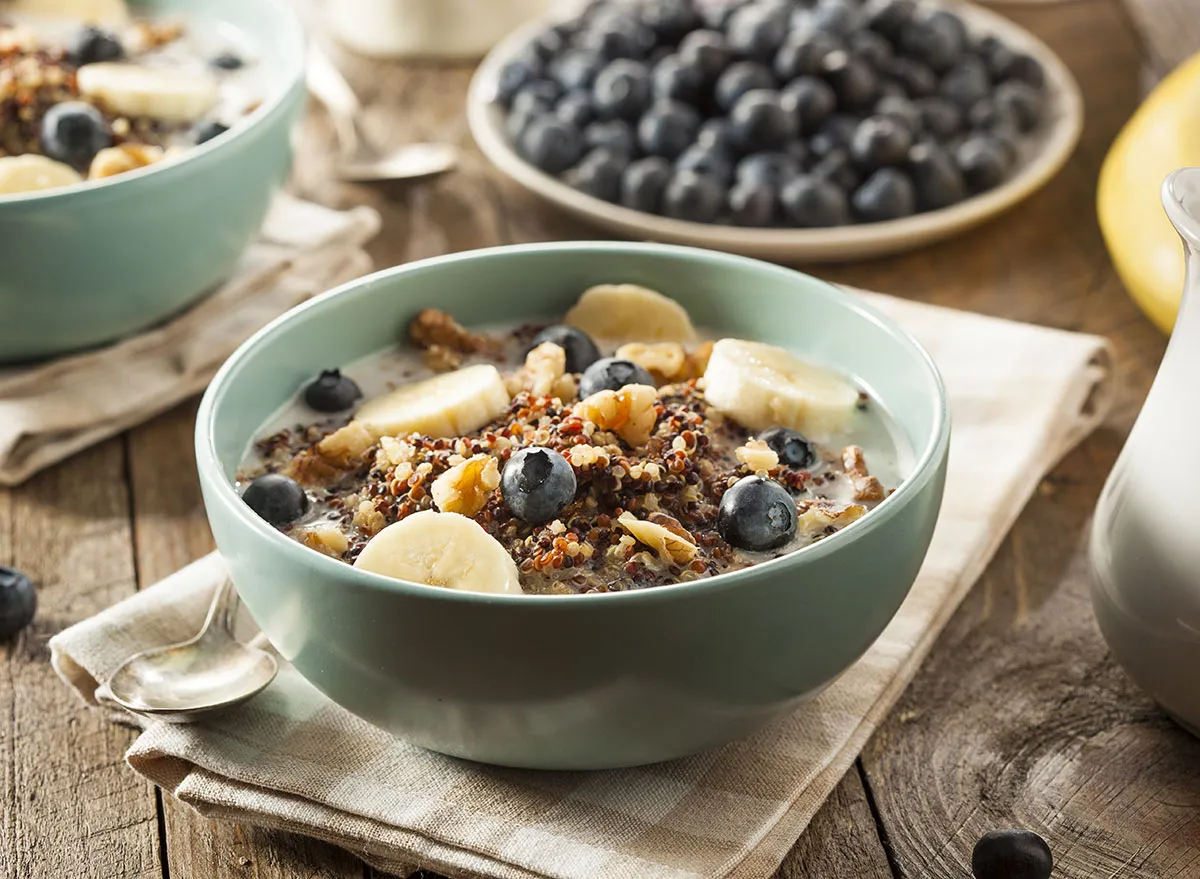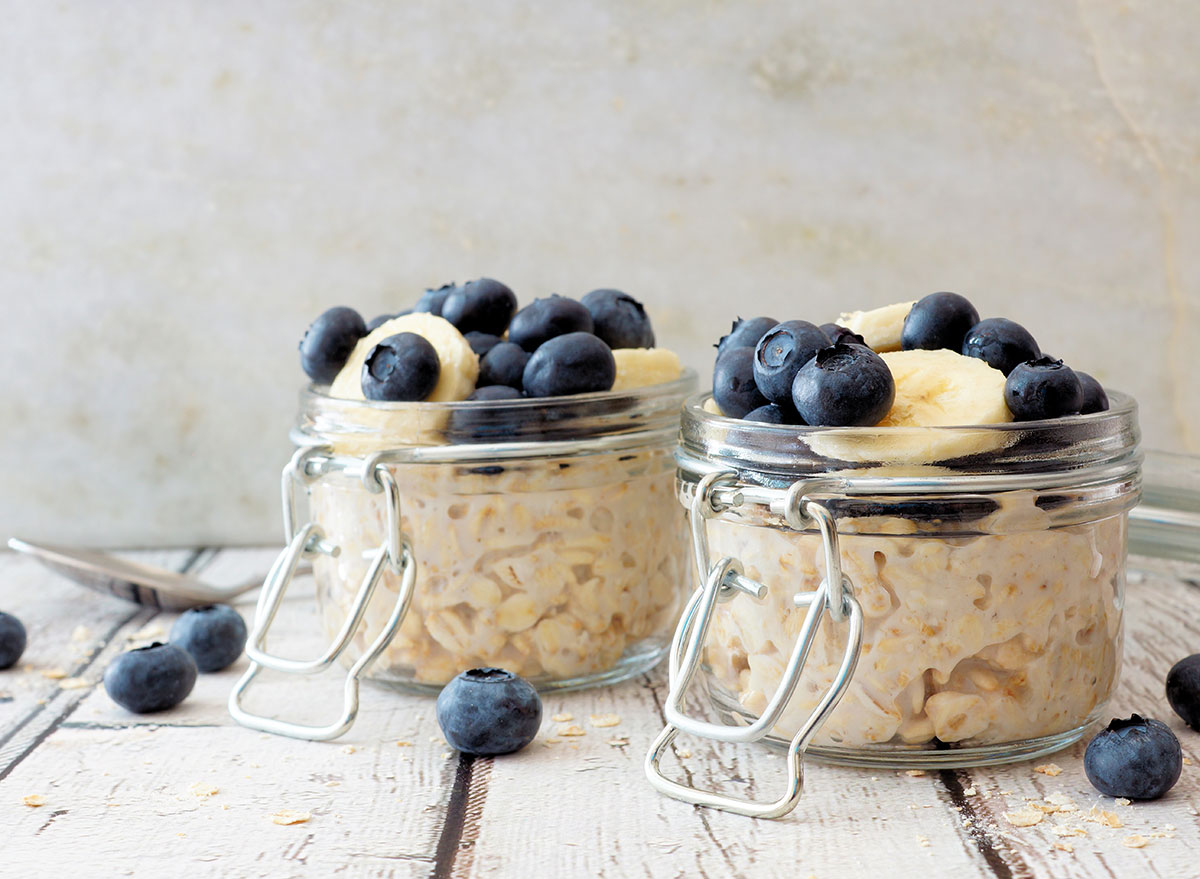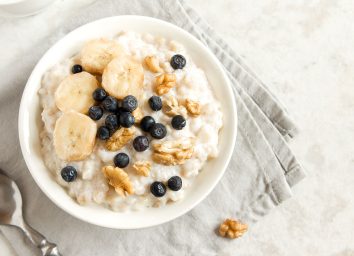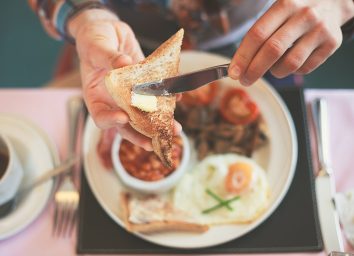The Secret Breakfast Trick For a Flat Belly All Day, Say Experts

Breakfast isn't just an opportunity to replenish your energy, it's also a chance to set the right tone for your day from a digestive standpoint. So, you might want to give a little more careful consideration to what you load onto your plate. It probably goes without saying that certain breakfast foods aren't ideal if you're trying to avoid bloating (like dairy products and pastries), but you may not know is that prioritizing one particular macronutrient can help you maintain a flat belly all day. Even more shocking? It happens to be a carbohydrate. Yes, you can have your carbs and eat them, too—especially in the morning when your body needs to refuel. And that secret ingredient is—drumroll, please—resistant starch.
"Not all carbs are created equal," says Cara Harbstreet, an RD who focuses on intuitive eating. "Resistant starch may deliver similar health benefits to dietary fiber—and feeling full and satisfied are two key components of healthful, sustainable eating habits."
Resistant starch is a specific type of carbohydrate that, true to its name, resists digestion in the small intestine. Most carbs get broken down into glucose (sugar), but resistant starch is special: the fibers ferment in the large intestine instead. That means it acts as a prebiotic to feed all the friendly gut bacteria—which explains why studies have shown an increased resistant starch intake can lead to a healthier and more diverse microbiome.
"Resistant starch, like fiber, is harder to digest," says Michelle Zive, RD and National Academy of Sports Medicine certified nutrition coach. "And like fiber, resistant starches make us feel full and help to maintain a healthy blood sugar level."
Dramatic blood sugar fluctuations can not only spike your appetite but also trigger cravings for sugar and carbohydrates—and then any excess glucose in your blood gets stored as fat. Fortunately, resistant starch helps to stabilize your blood sugar levels—which plays a key role in weight maintenance and your body's fat-burning capabilities. In fact, one 2015 animal study found that eating more resistant starch resulted in a fat reduction of up to 45%.
According to a 2004 study, resistant starch intake is associated with numerous positive metabolic changes: improved insulin sensitivity, increased satiety, and reduced fat storage.

If these powerful weight-loss benefits have you intrigued (and why wouldn't they?), try starting your day off with some foods rich in resistant starch.
Oatmeal is one breakfast food that has plenty of resistant starch—about 4 grams per 1/2 cup of oats. Note, however, that cooking your oats removes some of the resistant starch, but letting them cool will increase the resistant starch content. So, for the maximum benefits, consider making overnight oats by soaking them in yogurt, milk, or a non-dairy alternative. Cooked beans and legumes—especially white beans, lentils, and black beans—add a serious dose of resistant starch, texture, and some satiating fiber to an egg scramble.
Bananas are another phenomenal pick, but keep in mind that much of the resistant starch gets converted to sugar the more they ripen, which means your best bet is to use them up in smoothies and yogurt parfaits when they're on the greener side. Plus, bananas are an excellent source of potassium, which can help counteract the bloating effects of salty meals. Harbstreet also notes that potatoes, especially when heated and cooled down, are chock-full of resistant starch. Who says you can't have a small portion of air-fried breakfast potatoes with your eggs?
Get even more healthy tips straight to your inbox by signing up for our newsletter! After, read these next:








